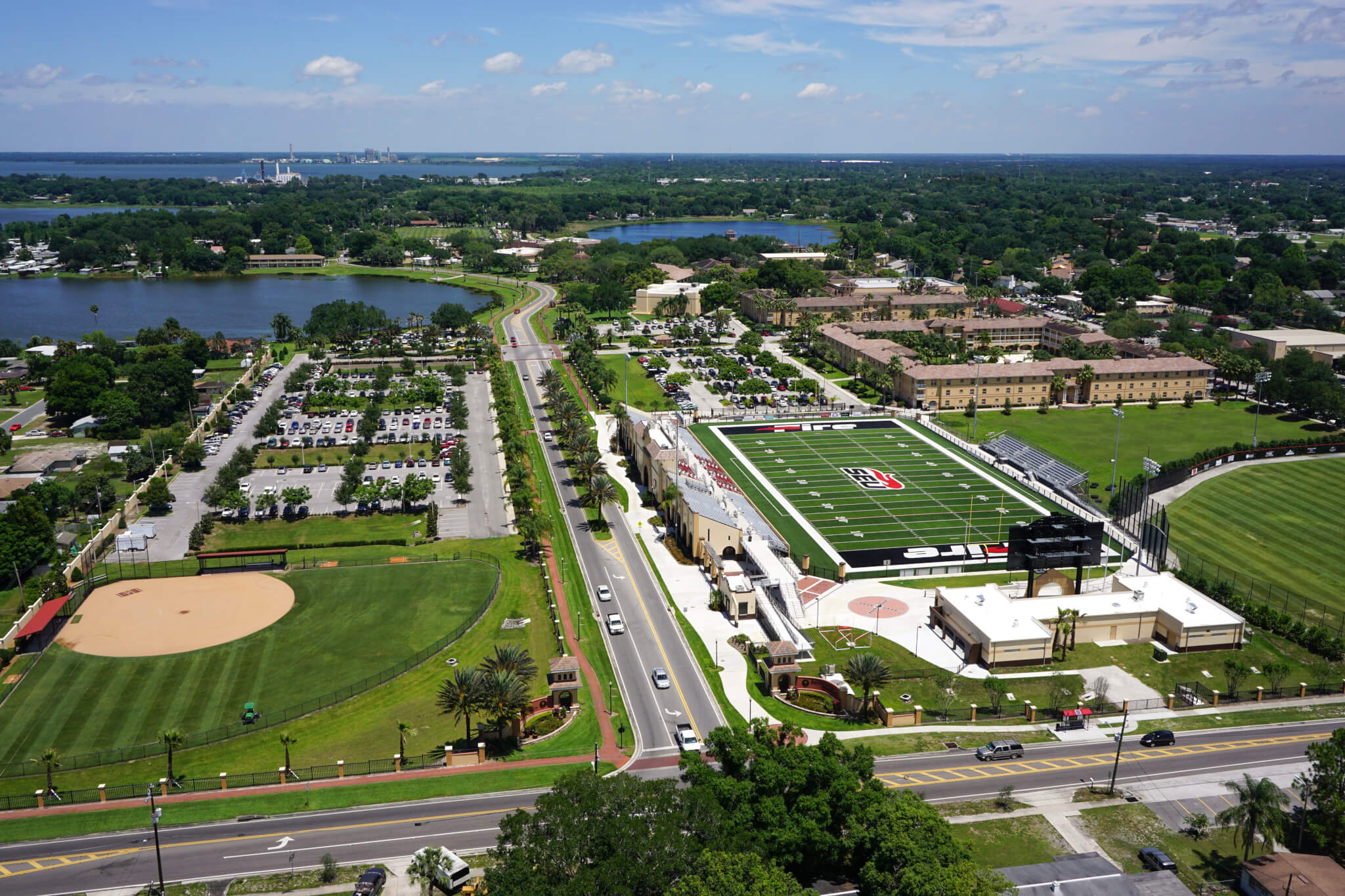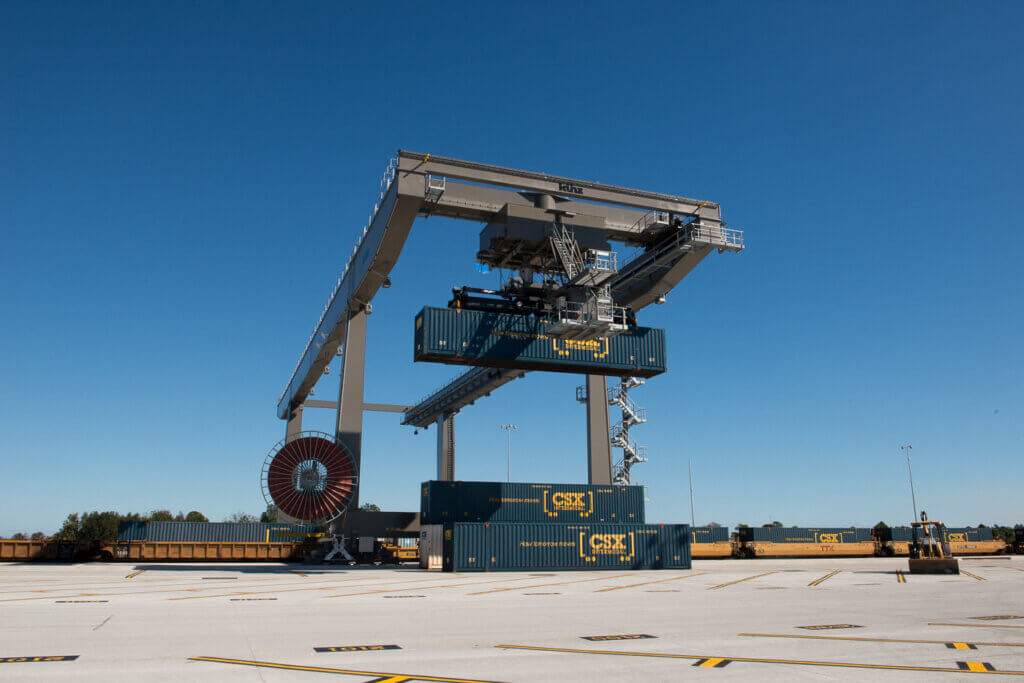For additional information about this topic or how to become a partner with the Central Florida Development Council, please contact Lindsay Zimmerman at lindsay@cfdc.org.
Students Work Towards Private Pilot’s License at Southeastern University
Students from around the nation are flying high at Southeastern University this summer.
For the first time, SEU is taking part in an Air Force Junior ROTC program that gives high school and college students a chance to earn their private pilot’s license in an eight-week program. Students will graduate on July 29th and receive their wings from Willie J. Allen II, Lt. Col., USAF, the flight academy director. Also a part of the graduation is Major General USAF (Ret.) H. D. Jake Polumbo, founding partner of Two Blue Aces. Polumbo serves on the SEU Aviation Advisory Board and is CFDC vice-chair.
SEU, which had been talking to the Air Force about getting involved in the Flight Academy program in 2020, stepped to the plate a year early when one university had to back out, said Joe Childs, director of Aviation Programs at SEU.
“One of the universities had to turn down 10 to 12 students in April because of the pilot shortage, which is so acute that colleges can’t keep flight instructors long enough. They move on to airlines,” Childs said.
An expected pilot shortage, which Boeing predicts will leave the industry needing to hire 6,000 civilian pilots a year for the next 20 years, prompted the industry and Air Force to collaborate to start a scholarship program in 2018. The military will need an additional 2,000 pilots. Industry and military officials are calling it a pilot shortage “crisis.”
Being part of the scholarship program “is a big thing for SEU and Polk County,” said Childs, who helped start the aviation program at Southeastern a year ago. “We are one of 11 universities in the U.S. awarded a contract for the Flight Academy program.”
Eight Air Force JROTC students — two high school juniors and five seniors, and one rising college senior — will be staying on campus and training to earn their Private Pilot Certificate through a contract with International Aero Academy based at Lakeland Linder International Airport.
“When they place students, they will pick one in college to be a mentor, someone to inspire students to do well,” Childs said. “It’s a competitive selection process. Students had to have an interest in aviation in terms of potential career and future area of study.”
The Air Force is trying to increase diversity of pilots, and JROTC has a very diverse group, he said. In JROTC, 40% are women and 58% are minorities. The program’s website said women make up only 6% of pilots and minorities make up less than 10%. “This is a way to inspire students, hook them while they are still early in their selection process for a career and school,” Childs said.
The students attending training at SEU are from Puerto Rico, Texas, Oklahoma, Illinois, North Dakota and Colorado, Childs said. One is from Polk County. Three are women.
Steven Markhoff, president and co-owner of International Aero Academy, said these are “motivated young people who are polite. They are great kids who study hard and are excited to be here. We’re excited to have them.”
His company employs 10 flight instructors and a maintenance team, as well as administrative staff. His school teaches students to fly on planes produced by the Italian company Tecnam. As a factory authorized service center, his company also maintains the planes.
Aviation at Southeastern University
Childs gave five reasons why aviation is important to SEU:
- It extends higher education to a new market, filling a need in society. “The labor shortage of pilots is so acute that from a U.S. defense standpoint, it’s almost a security threat — there are not enough pilots in the pipeline for the military,” he said. This program provides an opportunity for students to be exposed to life on a college campus, and check out the Air Force and military as a career.
- It advances SEU as a global player, Childs said, adding that the university would like to specialize in training foreign students. “Students will invest $60,000 in addition to flight training,” he said. After they start training here, they would then stay three more years. “That starts to add up as an economic impact.”
- It ties into the broader ecosystem of aviation in Polk County and Central Florida. “We’re excited to be a part of that.”
- It means SEU is taking another step into offering courses and training in STEM (science, technology, engineering and math) fields.
- It means professors and students likely will start research projects here. One adjunct professor already is doing research for the Navy on the efficiency of flight training (the use of simulators vs. actual flight training), Childs said. For instance, can students spends a few hours in a simulator rather than in a plane? Do they learn the same way? Does that save time and money? The part-time professor has a grant to study that as part of his postdoctoral research
After the students graduate from the summer program, they will be “given additional scholarship money to stay current in flying for another year through the Civil Air Patrol wing,” said Childs, describing them as “very bright, sharp, very mature and responsible for their age. They are engaged, studious, intelligent, funny” — the kind of people will make good pilots.
Next year, program officials hope to expand the footprint, doubling the number of scholarships provided and recruiting more universities to help train them. In 2018, the program graduated 120 students from six universities. This year, 150 are enrolled at 11 universities. In addition to getting their private pilot’s license, students also earn 12 college credits.



